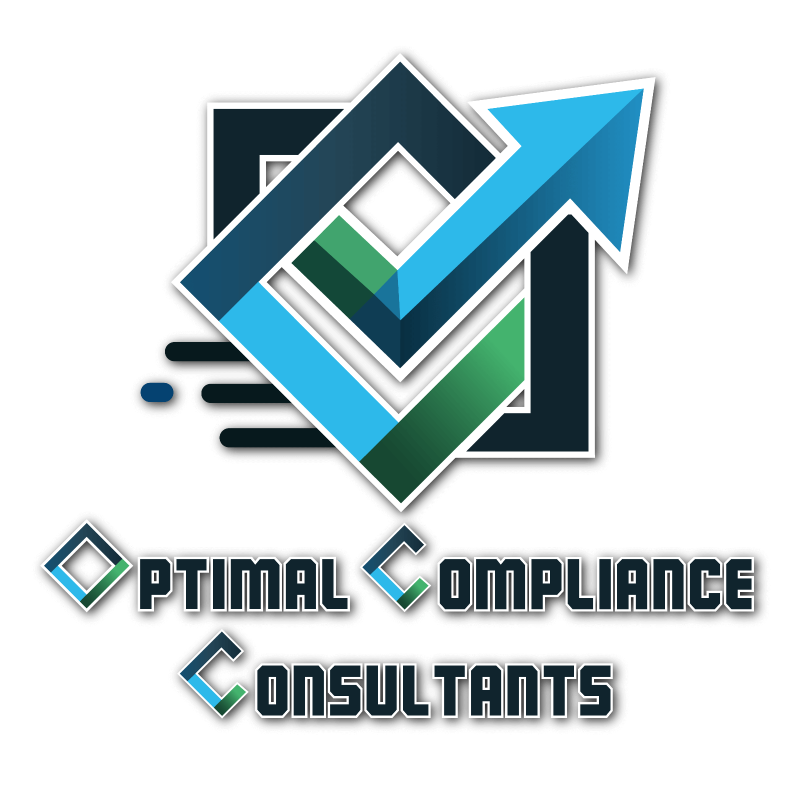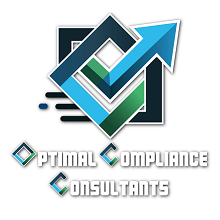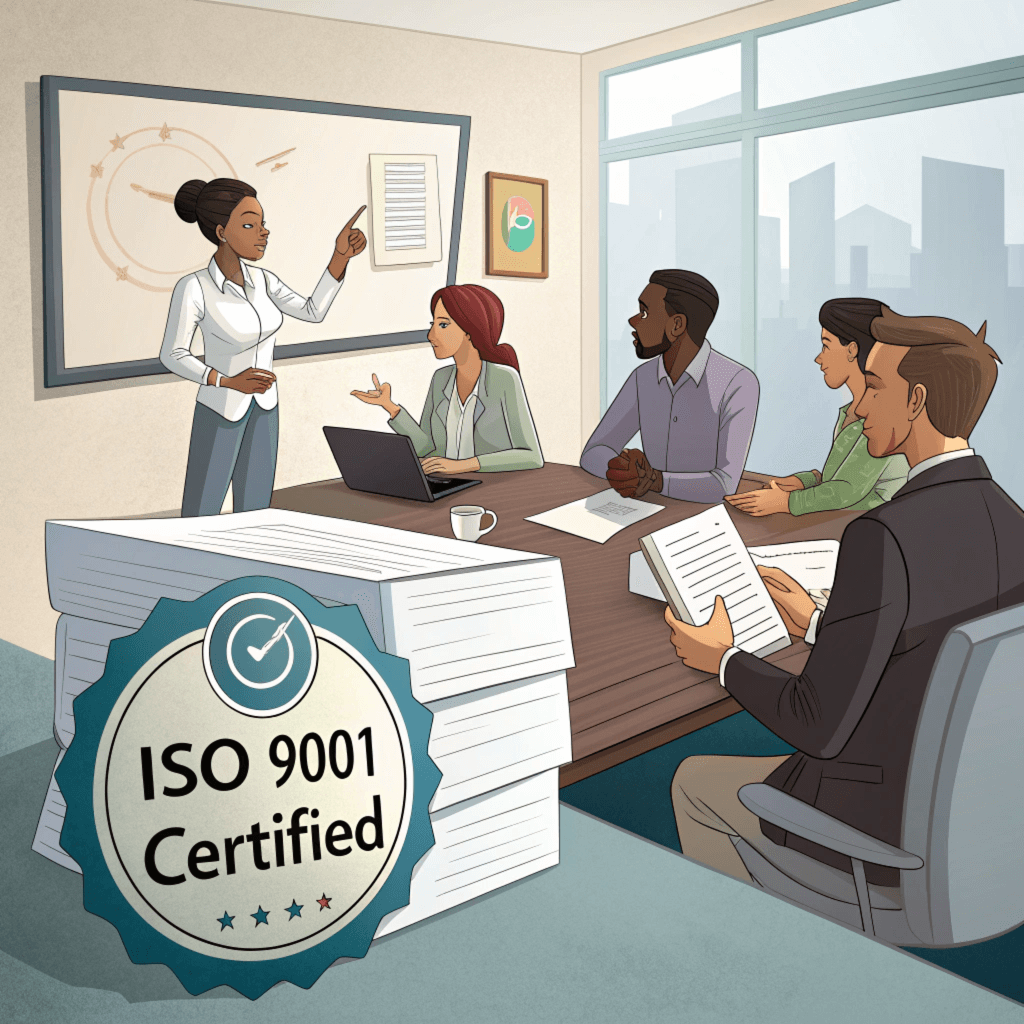How to Choose the Right ISO Consultant for Your Business
Introduction
When a company seeks ISO certification, the process can be complex and resource-intensive. Whether you’re implementing an ISO 9001 Quality Management System (QMS) or other standards, engaging an expert ISO consultant can make all the difference in achieving success. ISO consultants offer the guidance and expertise needed to navigate the certification process smoothly, reduce errors, and enhance business performance.
ISO consultants are highly skilled professionals with specific knowledge of ISO standards and the certification process. Businesses that use ISO consultants have higher success rates in obtaining certification. According to ISO statistics, companies working with professional consultants tend to meet certification requirements faster and with fewer challenges than those attempting the process independently.
Finding Expert ISO Consultants in Your Area
Types of ISO Consultants
Choosing the right type of ISO consultant depends on your business’s needs, budget, and industry specifics. Here are the primary types of ISO consultants you’ll encounter:
1. Independent Consultants
- Independent ISO consultants are individual practitioners with specialized expertise in ISO standards.
- They provide direct communication with the business, ensuring flexibility and personalized service.
- Independent consultants typically offer competitive pricing and tailored solutions based on specific business requirements.
2. Consulting Firms
- Consulting firms consist of multi-disciplinary teams that bring a broader resource base to the table.
- These firms often provide a structured approach to ISO certification, ensuring comprehensive support throughout the process.
- In case of unforeseen challenges, consulting firms can offer backup support and resources, making them a reliable option for large-scale or complex businesses.
3. Industry-Specific Specialists
- Some consultants specialize in particular industries and bring niche knowledge to help businesses meet industry-specific requirements.
- They provide the best practices and standards relevant to your sector, making them ideal for businesses needing specialized guidance.
Finding the right ISO consultant can be easier by using directories and industry associations to narrow down your options.
Qualification and Expertise Assessment
Essential Qualifications
Before selecting an ISO consultant, you need to verify their qualifications and experience to ensure they have the necessary skills to guide you through the certification process.
1. Technical Credentials
- Ensure that the consultant holds certifications relevant to your ISO standards, such as ISO 9001 or ISO 14001.
- Look for qualifications such as auditor certifications, which demonstrate in-depth knowledge of ISO standards and auditing procedures.
- Consider their continuing education, which shows they are keeping up-to-date with the latest ISO revisions and practices.
2. Experience Verification
- Check how long the consultant has been in practice and how many ISO certifications they’ve successfully facilitated.
- Look for testimonials or case studies from previous clients to gauge their success rate and credibility.
Expertise Validation
1. Knowledge Areas
- The consultant should possess a deep understanding of management systems, risk assessment, process improvement, and documentation systems.
- Look for consultants with a broad understanding of ISO standards and how they integrate with business operations.
2. Industry Knowledge
- ISO consultants should understand the regulations and compliance requirements specific to your industry.
- They should bring valuable insights on overcoming common industry challenges and implementing best practices.
What to Expect from ISO 9001 Consultants
When hiring an ISO 9001 consultant, it’s important to understand what services they will offer and what deliverables you can expect. The scope of services will typically include:
1. Pre-certification Services
- Gap analysis to identify areas of non-compliance.
- Implementation planning to develop a roadmap for certification.
- Documentation development, including procedures and work instructions.
- Training programs for staff to ensure proper understanding and implementation of ISO standards.
2. Implementation Support
- System development tailored to meet ISO 9001 requirements.
- Process mapping to streamline operations and ensure compliance.
- Risk assessments to mitigate potential disruptions.
- Internal audit preparation for certification readiness.
3. Post-certification Services
- Maintenance support to ensure ongoing compliance.
- Continuous improvement initiatives to enhance the system.
- Audit preparation for surveillance audits and re-certification.
- Problem resolution if non-conformities are discovered post-certification.
Deliverables
- Comprehensive documentation, including the Quality Manual and supporting procedures.
- Training materials for various levels of staff, ensuring everyone understands their role in the QMS.
The Value of Professional Quality Consulting Services
Cost Considerations
The cost of hiring an ISO consultant can vary depending on their expertise and the scale of your business. Consider the following pricing structures:
1. Fee Structures
- Fixed project fees for a defined scope of work.
- Hourly rates for smaller, time-limited tasks.
- Retainer arrangements for ongoing support.
- Success-based fees, where the consultant is compensated upon achieving specific milestones.
2. Value Assessment
- Assess the return on investment (ROI), such as faster certification and reduced errors.
- Evaluate time savings and resource optimization benefits.
- Consider risk reduction from expert guidance during the certification process.
Service Benefits
1. Direct Benefits
- Faster certification due to expert knowledge.
- Reduced risk of failure and non-compliance.
- Resource optimization through efficient systems and processes.
2. Indirect Benefits
- Knowledge transfer to your team, improving internal capabilities.
- Development of staff skills and leadership capabilities.
- Implementation of best practices to enhance operational efficiency.
Evaluation and Selection Process
Selection Criteria
When evaluating ISO consultants, consider both essential and desirable qualities:
1. Essential Requirements
- Technical expertise and industry-specific experience.
- A proven track record of successful ISO certifications.
- Availability of resources to meet your project needs.
2. Desirable Qualities
- Good communication skills to ensure effective collaboration.
- Cultural fit with your organization for smoother working relationships.
- Local presence for easier coordination and accessibility.
Evaluation Methods
1. Initial Assessment
- Review the consultant’s proposal, credentials, and client references.
- Verify their experience with similar projects and industries.
2. Detailed Evaluation
- Assess their methodology, approach, and team structure.
- Ensure they have a clear plan and system to support your business needs.
Working with Your ISO Consultant
Project Management
Effective project management is key to the success of your ISO certification journey. Here’s how to ensure a smooth process:
1. Planning Phase
- Define the project scope, deliverables, and goals.
- Establish a timeline and allocate resources for each phase.
- Set key milestones and deadlines to keep the project on track.
2. Implementation Phase
- Monitor progress regularly and address any issues that arise.
- Manage changes and scope adjustments promptly to avoid delays.
- Maintain consistent communication with the consultant to ensure clarity.
Success Factors
1. Clear Expectations
- Ensure both parties agree on roles, responsibilities, timelines, and deliverables.
2. Effective Communication
- Frequent progress reports to keep everyone informed.
- Clear documentation of actions, decisions, and changes.
Red Flags and Warning Signs
Common Issues
Not all consultants are created equal, and some issues may arise during the selection or project phase:
1. Consultant Red Flags
- Unrealistic promises or guarantees.
- Lack of references or proof of past successes.
- Poor communication or inconsistent feedback.
- Unclear or vague methodology.
2. Project Warning Signs
- Missed deadlines or delays.
- Quality issues with deliverables or processes.
- Lack of engagement from the consultant.
- Scope creep that leads to higher costs and extended timelines.
Resolution Strategies
1. Prevention
- Set clear contracts and expectations at the beginning.
- Regularly review progress and deliverables to ensure quality.
2. Problem Resolution
- Escalate issues as necessary and take corrective actions.
- Ensure proper documentation and communication to avoid misunderstandings.
Measuring Consultant Success
Performance Metrics
1. Project Metrics
- Adherence to timelines and budget.
- Quality of deliverables and outputs.
- Success in obtaining ISO certification.
2. Value Metrics
- Knowledge transfer and skill development.
- Effectiveness of the implemented systems.
- Staff competence in managing and maintaining the QMS.
Long-term Benefits
1. Immediate Outcomes
- Successful ISO certification and documented processes.
- Staff training and empowerment.
2. Sustainable Results
- Continued effectiveness of the quality system post-certification.
- Ongoing improvements and business performance enhancements.
Conclusion
Choosing the right ISO consultant is a critical decision for any business looking to achieve ISO certification. Whether you’re opting for an independent consultant, a consulting firm, or an industry-specific expert, it’s essential to assess their qualifications, experience, and ability to meet your specific business needs. A skilled ISO consultant can provide the guidance and resources necessary to navigate the complexities of the certification process, helping you avoid common pitfalls and ensuring a smooth journey towards compliance.
By understanding the various service offerings, evaluating the consultant’s qualifications, and establishing clear expectations for the project, businesses can achieve not only certification but also long-term improvements in their processes, systems, and overall performance. Remember, the value of an experienced ISO consultant goes beyond just getting certified—it’s about building a sustainable quality management system that supports your business’s growth and success.
With the right consultant by your side, you can be confident that your business will not only meet the necessary standards but also thrive in a competitive and constantly evolving market.





